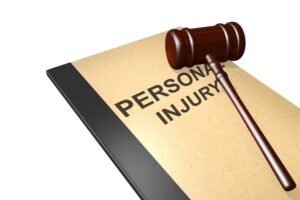 Getting involved in a legal case or issue can often be very confusing and overwhelming. Lawyers love to use terms that you don’t exactly know the meaning of, or they use a term that maybe has a little bit of a different meaning legally, than what you know.
Getting involved in a legal case or issue can often be very confusing and overwhelming. Lawyers love to use terms that you don’t exactly know the meaning of, or they use a term that maybe has a little bit of a different meaning legally, than what you know.
To make things easy we have come up with a list of the top 15 most common terms that you may hear come up in a personal injury action.
- Personal Injury: The most common of the terms, a personal injury involves an injury to the body, mind, or emotions. Thus, a person can either be hurt physically, emotionally, or mentally/physiologically as a result of someone else’s intentional or unintentional actions.
- Tort: Simply put, it is a civil wrong, as opposed to a criminal act. A tort is a wrongful act that results in an injury or harm to a person.
- Negligence: This is a type of tort. Negligence is the failure of a person or persons to exercise a standard of care that a reasonable person would in a similar situation, and it results in another’s injury.
- Liability insurance: In particular with auto insurance coverage, liability insurance is the amount of insurance you are required to have by law so that if you are at fault for an accident, your insurance company will be able to pay for the injuries you may have caused the other party involved.
- Claim: A claim is a demand for compensation or assertion of a right in a legal matter.
- Complaint: Is the first legal pleading that begins a civil action in court. It will state the plaintiff’s basis for the claim and demand some sort of relief, usually in the form of monetary damages.
- Answer: This is the response to the Complaint. It will consist of any denials or admittances to the claims in the Complaint.
- Statute of limitations: This is the time limit a person has to file a lawsuit. This may differ depending on the type of lawsuit. In Colorado, a lawsuit for an auto accident has a three year statute of limitations from the date of the accident.
- Damages: Is the money claimed or ordered to be paid to a person as compensation for loss or an injury. This can included compensatory damages, or actual damages, and punitive damages, or damages to punish the wrongdoer.
- Comparative fault: Also known as comparative negligence, it is the concept in which a person’s recovery for an injury is proportionally reduced by their degree of fault in the incident that led to the injury.
- Deposition: This is a type of witness testimony that occurs out of court. It will be either transcribed or video recorded, and may be used later in court or for discovery purposes.
- Discovery: This is the legal process of finding and learning about the facts and available information regarding the case. Discovery occurs through written questions and requests, as well as through depositions.
- Proximate cause: This is the “legal” cause that results in liability. In other words, it is the cause that directly creates an incident that would not have occurred but for this action.
- Bad faith: Basically, it is dishonesty on the part of a party. For example, there is the tort of bad faith breach of a contract, which can occur with insurance contacts.
- Wrongful death: Is a lawsuit brought on behalf of a deceased’s family or family member. The lawsuit seeks damages for the decedent’s death due to someone else’s negligent actions.
A personal injury case often involves the expertise of an experienced lawyer. While these terms may help you make a little sense of what may happen in a personal injury case, it is important to contact an attorney right away if you have been injured by someone’s careless and thoughtless actions.


